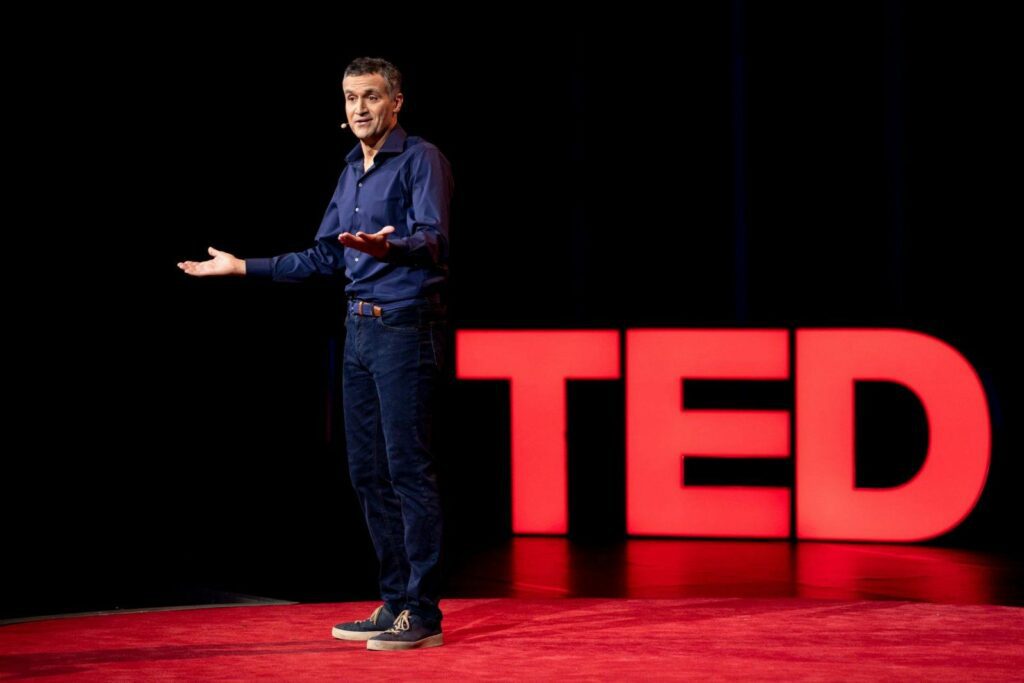Carl Honoré has been preaching the power of slow for nearly two decades, but it’s taken a pandemic for many in the world to appreciate his point: that perhaps our addiction to speed is taking us nowhere fast.
Honoré wrote his first book on the subject back in 2004 – In Praise of Slow: Challenging the Cult of Speed – but as he tells Dominic Bowden in the fourth episode of the WellBeings podcast, in the years since things have only become more extreme on the busy-is-best front.
As he puts it, on a scale of 1-10, “the speed-o-meter has gone up to 11 in the last few years”; to the extent that he can now point to a gym near his London home which offers “speed yoga” for those who consider they’re too busy for the traditional take-your-time-and-breath version; and a US funeral home which offered drive-in funerals for time-pressed mourners to quickly pay their respects to their dearly departed without having to get out of their car.
But then came the pandemic. For all the havoc it’s wreaked on lives around the world, Honoré can see a silver lining, as it left so many people with no choice but to slow down and spend more time thinking about their lives.
“It has given people an opportunity to think – reflect – for the first time and make big decisions; deep, seismic, tectonic changes which can really only be made wisely if you slow down and think it through first…
“For a lot of people, I think this will have been a real inflection point, in a good way,” Honoré tells WellBeings.
But he also recognises that lessons learned can be easily lost as we learn to live in a Covid world and are tempted back to the old addicted-to-speed ways.
His advice: keep a record of the slow stuff you turned to during lockdowns, and don’t lose sight of the pleasure it offered. Embed it into your life, even if at a reduced level – whether it’s just a commitment to going for an evening walk with a partner, or some dedicated time with the kids.
“It’s so easy to enjoy it at the time and then forget it later. To get caught up in the vortex of fomo (fear of missing out) and rush and distraction when things open up and speed up again.”
He’s the first to acknowledge how hard it is to break our addiction to speed. “People are defined by their to-do list. It’s woven into the vernacular now, that busier is better, so that when you meet someone in the street and say, ‘hi, how are you doing’, they say ‘busy’. If you don’t say busy, somehow that feels like an act of surrender.”

As Honoré argues, slowing down doesn’t mean not moving, or replacing dynamism with sloth. Rather, it’s all about re-establishing connections – whether within ourselves, or with others – and rediscovering the profound importance that flows from that.
His personal epiphany – a “pretty searing” one, as he admits now – was when he found himself so focused on finding shortcuts and quick fixes that he was seriously contemplating buying a book to share with his infant son, called One Minute Bedtime Stories.
“My first reaction was, `hallelujah man, I need to get that book now – Amazon, drone delivery’. The second reaction [was]… `is this really my life now? Am I racing through life so fast that I’m even prepared to fob off my little boy with a soundbite instead of a story at the end of the day?’ ”
And for those who hear his message, who then do some reflection and agree that maybe it wouldn’t be a bad thing to take their foot off the gas for a bit, he has plenty of advice. Of which the first bit, not surprisingly, is to make change slowly.
Meanwhile, if there’s someone you care about who you think could benefit from that, he suggests this. “There’s no universal formula for slowing down… They’ve got to go slowly, they’ve got to go gently and they’ve got to experience it. It’s not enough to send them persuasive or compelling reading, or show them the data.
“They have got to experience it. Once people taste the upside of slow… they don’t tend to go back.”
As Bowden himself says after recording the podcast: “I realised how much I was victim to the cult of hurry that Carl describes. On the phone, while watching TV, eating and talking to someone, doing none of it very well. What was I missing out on? So much.
“I really relate to the idea of feeling stuck in fast forward a lot of the time and the more I’ve focused on doing things slowly in a more considered way, it feels I’m producing my best work, developing stronger friendships and deeper relationships. I am a convert to the slow movement, that’s for sure.”

